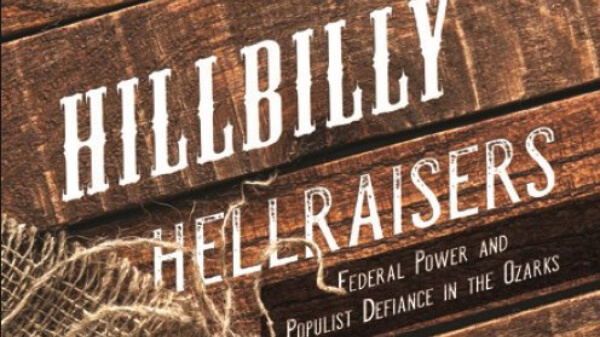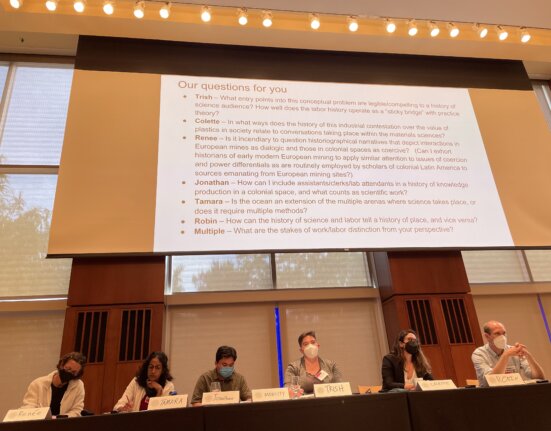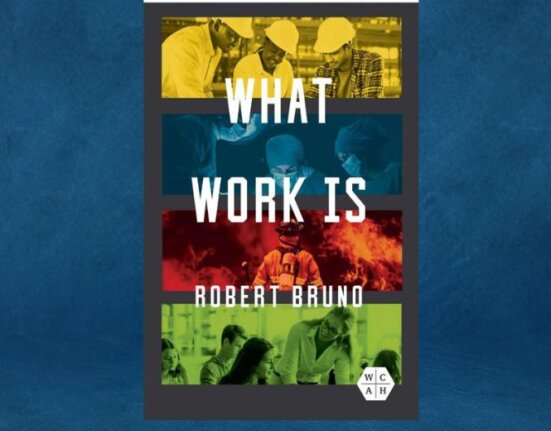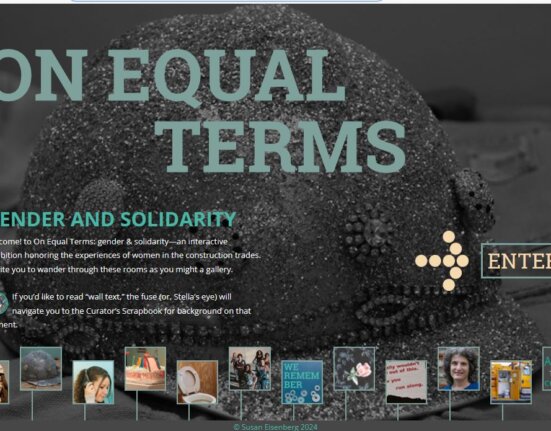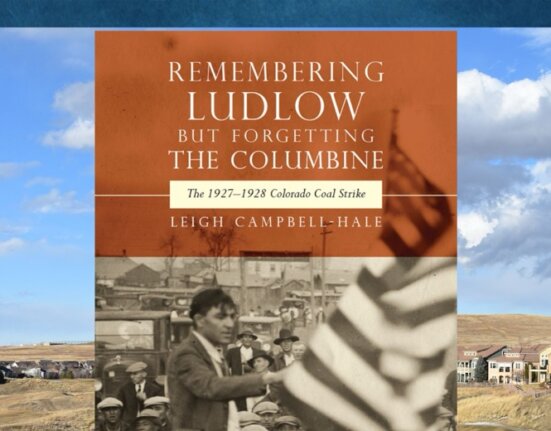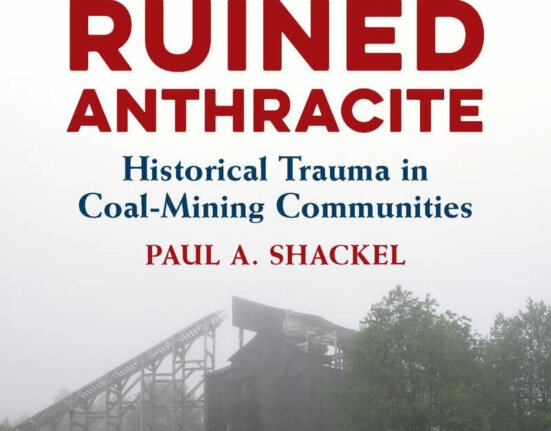Our monthly series on new books in labor and working-class history continues with J. Blake Perkins’s new book Hillbilly Hellraisers: Federal Power and Populist Defiance in the Ozarks, which was published last month in the University of Illinois Press’s Working Class in American History series. Perkins is an assistant professor of history at Williams Baptist College in Walnut Ridge, Arkansas. He answered questions from Jacob Remes.
Let’s start with a very basic question. What are the origins of resistance to the government in the Ozarks?
There were different origins over time, so it is not a linear story. The late nineteenth and early twentieth centuries seemed a logical place to begin looking. Amid this era’s major economic and social changes, important discussions arose in the Ozarks about modernity, capitalist development, and the proper roles of government in promoting a more democratic political economy. Of course, this was also the time when sensationalized stories in the national press about seemingly exotic mountain moonshiners warring against the “feds” created powerful stereotypes of a reactionary, anti-government rural culture in the region. But the grassroots support for Populist politics among white working-class Ozarkers and its quest to combat economic inequality with expansions of federal regulatory power—“in other words, of the people,” as the Populists themselves put it—indicates that white smallholders and working people were not resisting government per se. Instead, working people in the Ozarks detested the unequal access to political power within the region and resisted local elites’ monopolized use of federal authority and resources for their own ends at the expense of rural economic democracy.

Later, after World War II, a new and different culture of defiance arose in the region. As thousands of small farmers and other working-class populists left their opportunity-strapped communities for jobs in Western and Midwestern cities and more urbanized places inside the Ozarks, town business elites in the region joined with new middle-class in-migrants from the urban and suburban Midwest to mount a conservative defense against liberals’ “Big Government” programs and policies that seemed to threaten their new low-wage, anti-union light industry and agribusiness prospects—a New Ozarks economy that they had built, ironically, with large doses of federal power and resources. These New Ozarks elite and middle classes also clung tightly to and vowed to defend a mythical and romanticized “heritage” in the region against the subversive plots of liberal culture.
Hillbilly Hellraisers is very specifically about the Ozarks, but what might those of us who study resistance in other places take from it? In other words, what does it contribute to a broader conversation, whether among historians or other types of scholars, about state-citizen relations?
I’m convinced that the experience in the Ozarks is, in many ways, a historical microcosm that raises important questions about working-class relations with liberal-state power more generally, in the United States and perhaps globally. A good deal of work has been done by social scientists and historians exposing the fallacies of statist bureaucrats’ tendencies to push hegemonic, one-size-fits-all policies and programs in their efforts to improve social conditions. Even “high modernist” schemes, to borrow from social scientist James C. Scott’s terminology, with the best and most sincere of intentions have often backfired and hurt the poor and working-class people they were supposed to help. But what has not been emphasized as much, especially in studies of federal social improvement efforts in the United States, is how national reformers, adhering to traditions of state’s rights and local control, typically compromised with and delegated authority to comfortable local elites when implementing government programs, thus obstructing the most sincere aims of reform.
In the Ozarks, more often than not, local elites were more interested in using federal resources to advance their own ideas and agendas of “progress” for regional business growth than in putting them to work for working-class economic democracy, which triggered resistance from the very rural smallholders and working people the programs were meant to help. Then, when some of the federal social and anti-poverty programs in the 1960s and 1970s did seek to bypass local power by taking resources more directly to poor and working people, the region’s business elites and political leaders led an uproar against overreach by Washington bureaucrats and liberals. For their part, well-meaning reformers failed in this important moment to understand the real and historical dynamics of society and economy in the region; many fell back on overly simplistic assumptions and hillbilly stereotypes to try to make sense of rural problems and attitudes. Consequently, they could not convince enough of the working poor who remained in the region that they had their best interests at heart and left elite defenders of the status quo a virtual monopoly in framing the discourse on matters of politics and political economy. I don’t think the general patterns of this story are at all unique to the Ozarks.
For the past year especially, there’s been a lot of interest in hillbillies and other working-class, rural white people, as scholars and especially journalists seek to find and understand “The Trump Voter.” You obviously started your work before Donald Trump’s political rise, but how does it help us understand Trump voters better?
The historian in me is far too modest to claim to hold the definitive answers about the “Trump Voter,” especially since we’re merely a year out from the 2016 election. But I do think there are some important themes in the book that should help in this quest for understanding. The latter part of Hillbilly Hellraisers looks to help untangle Thomas Frank’s big question of “what’s the matter with Kansas?” today—or, in my case, the Ozarks. For starters, we need to recall the wholesale transformation in rural political economy, particularly how low-wage light industry and agribusiness replaced the small family farm and how middle-class suburbanites relocated to repopulate rural communities after the massive outmigration of many working people had nearly emptied them during the mid-twentieth century. Despite all of the recent talk about the “rural working-class whites” of Trump’s base, especially a la J.D. Vance’s best-selling Hillbilly Elegy, the loudest and most enthusiastic Trump supporters in the Ozarks seem to be more comfortable business and agribusiness owners, retirees, and other middle-class folks who want to safeguard the power and prosperity they have in the region. This right-wing (so-called) “populism” today comes more from a newer vein of resistance, like that of local business and political elites’ fiery opposition to the federal government’s social programs that began in the ’60s , than from the earlier grassroots defiance of rural working-class people that I write about in the first parts of the book. While J.D. Vance points to a culture of entitlement, anger, and an I’m-the-victim mentality among Trump’s supposedly rural white “working class” base, it occurs to me that the sense of entitlement and victimization in rural America that makes Trump’s promise to “Make America Great Again” so appealing runs much deeper among the business and middle classes that want to preserve the status quo and fear the changes of progressive reform than among the poorer working classes.
Still, a quick glance at county-level voting returns in the Arkansas Ozarks in 2016 shows unusually high—and, in some cases, remarkably high—voter turnout by modern standards in most counties, which would seem to suggest that Trump’s enormous margins were at least, in part, due to a significant share of truly working-class votes. I’m inclined to think that this has a lot to do with a nearly monopolized political discourse in which progressives have failed miserably in rural communities to offer compelling challenges to right-wing rhetoric and organization—and it seems that some have just written off rural constituencies entirely. While the hill may seem steep to climb in rural America today, I do think there are plenty of opportunities for social reformers and advocates of working-class democracy to work with, and a handful of groups are hard at it and doing good work. But to rekindle a powerful spirit of working-class democracy, progressive leaders and activists will first have to refrain from their age-old tendencies to stereotype and oversimplify rural people and work hard, instead, to better understand and respect their lives—past and present.
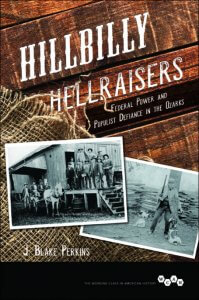
You come from the Ozarks, went to grad school in Appalachia, and now teach in an Ozarks-adjacent county. How did your personal experience shape this book?
Hillbilly Hellraisers is not only the product of several years worth of academic research and writing but also of a personal journey to better understand my home area and rural American history more broadly.
I grew up on a cattle farm outside of a small town in northern Arkansas that had a population of fewer than 80 people. I graduated from a small public high school in a neighboring town with about 300 people. The school’s tiny enrollment forced it to consolidate with another district the year after I graduated. Many of my classmates’ parents either worked at the school or commuted to larger and growing regional centers—sometimes more than an hour drive each way—for factory, construction, or healthcare jobs. Or, like my sister and me, their families had adapted—often with the help of local privilege—to the agribusiness economy. Most all of us were raised in evangelical and fundamentalist Christian families.
I attended a small liberal arts college in a larger town about 35 miles from home where I encountered all kinds of new ideas and perspectives and decided I wanted to be a historian. I began graduate school in Missouri in the fall of 2008 and became fascinated with the anti-Obama, anti-government political discourse that rang so loudly in the Ozarks. I wondered how the region’s history of clashes with federal power might have shaped these sentiments as I continued my graduate work in West Virginia. Studying Appalachian and working-class history brought my research and thinking about the Ozarks further into focus. Then returning home to teach at a small liberal arts college in Arkansas and to live among family and rural neighbors put me back on the ground level to observe and think about rural life and its history in the region as I finished the book. So yes, the fingerprints of my personal background and experience are all over the book.
Now that you’re done with this book, do you have another project lined up to work on?
I’m delving deeper into the long career of Populist politics and activism in rural America, focusing my research on Arkansas. I’m especially interested in debates about and the evolution of rural political economy during the long twentieth century and how organized alliances and unions of smallholders and working people that championed progressive reform so powerfully in the early twentieth century—like the national Farmers Union (or Farmers Educational Cooperative Union)—eventually lost out to conservative agribusiness associations as the primary “spokesmen” for rural America and its “interests.” I think a closer look at this history of efforts to organize and act collectively—and the moments of success and failure over time—may shed important light on society and politics in rural America today and in the future.


